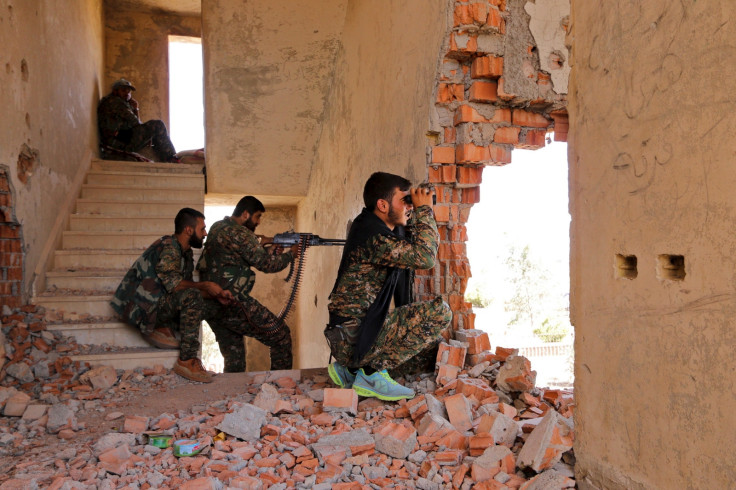Syria: Anti-Isis Kurdish YPG fighters 'attacked by Turkish forces'

The Kurdish People's Protection Units (YPG) has claimed its positions came under fire from Turkish tanks deployed across the border at two different locations in northern Syria.
"Instead of targeting IS terrorists' occupied positions, Turkish forces attack our defenders positions," the YPG said in a statement. "We urge the Turkish leadership to halt this aggression."
The group said heavy tank fire struck the village of Zor Maghar, east of Jarablus, on 24 July and again on 26 July, wounding four fighters of an allied Syrian rebel group and several civilians.
The attack was confirmed by the UK-based Syrian Observatory for Human Rights (SOHR).
An YPG vehicle was targeted in a separate attack on the border village of Til Findire, east of the iconic city of Kobani, which became a symbol of Kurdish resistance against IS earlier in 2015, the militia added.
Instead of targeting IS terrorists' occupied positions Turkish forces attack our defenders positions. We urge the Turkish leadership to halt this aggression
Turkish authorities said they were investigating the incident, which came amid heightened three-way cross-border tensions involving government forces, Kurdish militants and Islamic State (Isis).
"The ongoing military operation seeks to neutralise imminent threats to Turkey's national security and continues to target ISIL in Syria and the PKK in Iraq," a government official said, according to Today's Zaman newspaper.
"The PYD [the political wing of the YPG], along with others, remains outside the scope of the current military effort."
Earlier in July, Ankara waded into the Syrian conflict launching airstrikes against IS in the wake of a suicide bombing that killed 32 socialist youth volunteers in the southern city of Suruc, on the Turkish side of the Syrian border.
The massacre, which the government blamed on IS, was shortly followed by a spree of deadly attacks on Turkish security forces, some claimed by the banned Marxist-Leninist Kurdish separatist movement Kurdistan Workers Party (PKK).
The PKK claimed it was acting in retaliation for the Suruc attack as it accuses the ruling AK Party of President Recep Tayyip Erdogan of tolerating or even supporting IS.
Turkey has long been reluctant to fight the jihadi group, wary that the success of Kurdish militants that have exploited the security collapse in Syria and Iraq to carve out a territory for themselves, could empower Kurdish separatists movements at home.
Earlier in July, US national Jordan Matson, fighting alongside the YPG in Syria, claimed he was fired upon by Turkish forces whose suppressing fire covered IS extremists as they retreated across the Turkish border.
As it targeted IS, Ankara also clamped down on the PKK, with hundreds of arrests across 13 provinces.
© Copyright IBTimes 2025. All rights reserved.





















